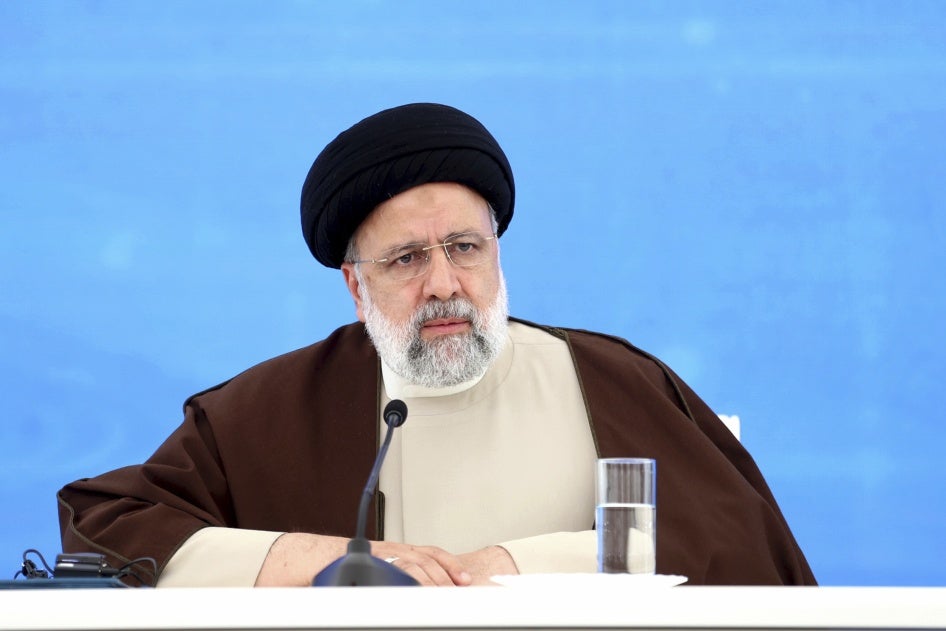In a recent development that has raised concerns across the Middle East, Iran’s President, Masoud Pezeshkian, issued a stern warning to Israel, following a missile strike that targeted Israeli territory. The strike, which took place on Tuesday, was a clear message from Iran to Israel. President Pezeshkian later took to social media, specifically the platform X (formerly Twitter), to state that this strike was merely “a portion of our power,” indicating that Iran has much more military strength at its disposal.
Pezeshkian’s message on X emphasized that Iran’s missile strike was not an act of aggression, but rather a defensive response to protect Iran’s national interests and its citizens. He made it clear that Iran does not seek conflict, but will not hesitate to defend itself if provoked. “This action was in defense of the interests and citizens of Iran. It is a warning to Israeli Prime Minister Benjamin Netanyahu that Iran is not belligerent but is prepared to stand strong against any threat.”
The president’s statements reflect Iran’s broader strategy in the region: to show its military capabilities without appearing as the aggressor. The missile strike was intended to signal to Israel that Iran is ready to escalate if necessary, but prefers to avoid open conflict.
Following President Pezeshkian’s statement, Iran’s Supreme Leader, Ayatollah Ali Khamenei, also issued a strong message aimed at Israel. In an unusual move, Khamenei addressed Israel directly in Hebrew via X, warning that Iran’s future strikes would be even more devastating if Israel continued its military actions. He referred to the Israeli regime as a “worn and rotting body,” stating, “With God’s help, the blows of the uprising front will become stronger and more painful on the worn and rotting body of the Zionist regime.”
This message from Khamenei aligns with Iran’s narrative that the Israeli government is weakening both politically and militarily. Khamenei’s use of Hebrew was a deliberate tactic to ensure that his message was received directly by the Israeli public, further intensifying the psychological pressure on Israel’s leadership.
The exchange of threats between Iran and Israel comes amidst a larger backdrop of rising tensions in the Middle East. Israel recently launched a ground operation near its northern border with Lebanon, targeting the militant group Hezbollah, which is heavily backed by Iran. This military operation is seen as a significant escalation in the long-standing conflict between Israel and Hezbollah.
The situation became even more volatile after Israel conducted an airstrike last Friday that killed Hezbollah’s leader, Hassan Nasrallah. Nasrallah had been a key figure in Hezbollah’s military operations against Israel, and his death has dealt a major blow to the organization. However, Iran’s support for Hezbollah remains strong, and Tehran has vowed to retaliate for the loss of Nasrallah.
Israel’s military operations in Lebanon and its targeting of Hezbollah’s leadership have only served to deepen the conflict with Iran, which has historically supported Hezbollah as a proxy force against Israel. Iran’s missile strike can be viewed as part of its broader response to Israel’s aggressive moves in the region, and a way to show that it will not stand idly by while its allies are attacked.
The situation remains fluid, and it is unclear whether Israel or Iran will seek to de-escalate the conflict or continue down a path of retaliation. Iran has shown that it is willing to use military force to defend its interests, but it has also indicated that it prefers to avoid a full-scale war. Israel, on the other hand, has been actively working to neutralize Hezbollah’s influence near its northern border, but this has brought it into direct conflict with Iran.
Both nations are playing a delicate balancing game. While neither side seems eager for a full-blown conflict, the possibility of further military exchanges remains high, particularly if Israel continues its operations against Hezbollah or if Iran feels compelled to retaliate for Nasrallah’s death.
As tensions between Iran and Israel escalate, the rest of the Middle East watches nervously. The region has long been a hotspot for conflict, and the current situation between Iran and Israel only adds to the uncertainty. The missile strike by Iran may have been a warning shot, but both countries have shown that they are willing to take military action if necessary.
For now, the world waits to see if diplomacy will prevail, or if the region will descend further into violence. Iran has made its position clear: it does not want war, but it will defend itself and its allies. The question now is how Israel will respond, and whether a path to peace can still be found amidst the growing tensions.







